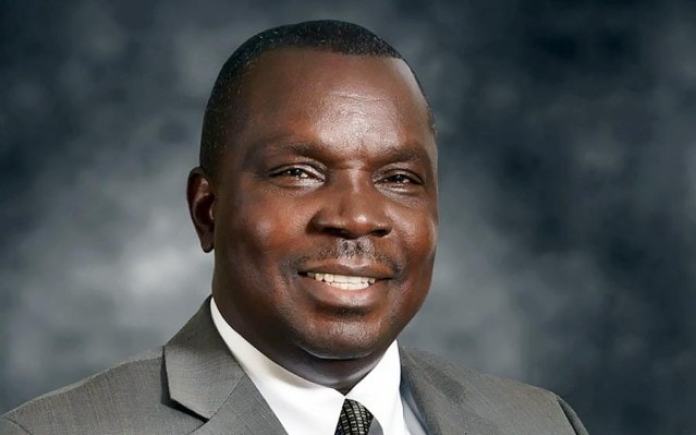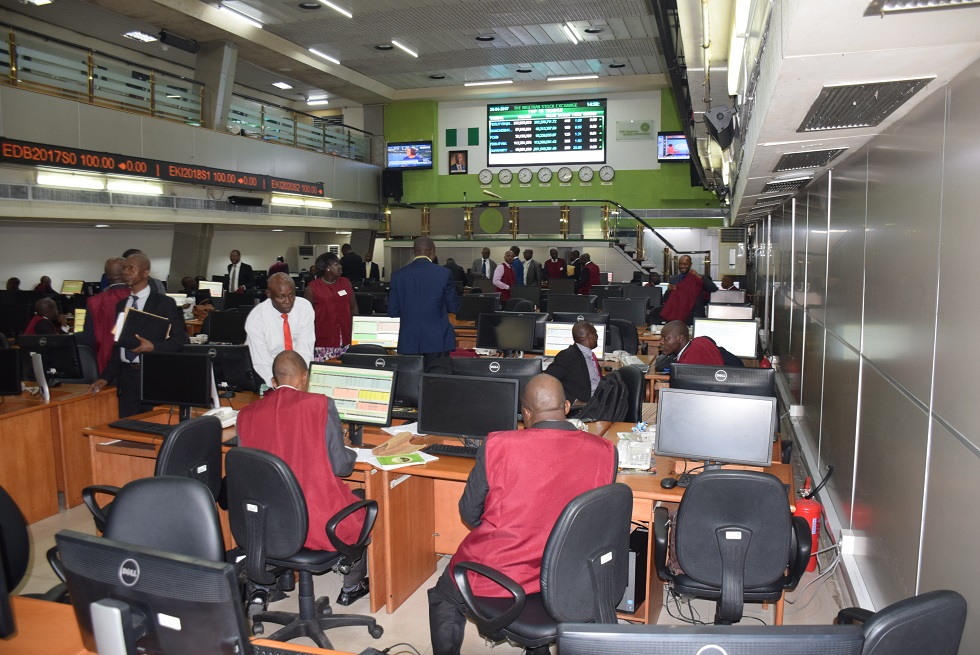BY MICHAEL JIMOH
Between March and June last year, I was part of a team that interviewed Austin Avuru at two different places in Lagos. The first was an office in Ikoyi and the second a well-appointed residential building in Lekki Phase One.
Austin Avuru is CEO of Seplat Petroleum, one of a few O&G companies in Nigeria quoted on the NSE and LSE. The house in Lekki is his, where he has lived for more than 10 years now.
A series of Q&A spread over weeks, he recalled, in sequential order, his life from infancy through adolescence to adulthood for a forthcoming biography, A Safe Pair of Hands. All three of us, along with the principal biographers – Toni Kan and Peju Akande – were swept along as his story unfolded.
Advertisement
There were no hesitant moments as you expect, sometimes, in maiden meetings between biographers and their subjects. From the onset, Austin Avuru settled into his role recalling momentous events that happened more than half a century ago, taking us through the valleys and hills, the smooth sailings, the perilous periods, the unforeseen and unexpected tragic times that have defined and shaped his life to this day.
Losing a father at six isn’t anyone’s great idea of starting out life. Married for almost a quarter century without a child is even lesser fun, if it is fun at all. Losing the same spouse to a sudden asthma attack is more than anyone can bear. But Austin Avuru lived through it all, insisting stoically that “once I have done what I think I need to do and things that I have no control over, I won’t knock my head against it.”
The only son of four children born on August 17, 1958 to Stephen Chukwusa Avuru, a cocoa farmer in Ipetu Ijesa in the then Western Region, Austin was still a minor when, on his father’s death, he saw people rolling on the ground in front of his unroofed nine-bedroom house in his natal town Abbi, crying. At that age, he knew something tragic had happened but it never registered in his young mind he would be fatherless for the rest of his life.
Advertisement
Some people are born without knowing one or both parents. Even so, there is a memento left behind sometimes, a relic or token by way of pictures showing shared physical similarities between father and son, mother and daughter: a gap-teeth, say, bat-wing eyebrows, a high or low forehead, jutting or shrunk ear lobes.
For Austin Avuru, there were no such keepsakes to remember his father by. The only memory of his late father is sitting astride his shoulders at four, breathing in the scent of his hair pomade, as they made the rounds in their neighbourhood in Ipetu IJesa.
By the time he was conscious enough, he would seek his father’s photographs in vain. The only surviving copy, it turned out, vanished without a trace, like a mirage as if Avuru Senior never even existed. So, beyond word of mouth description of what his father looked like, there is not a solo or group shot in which he appeared to this day.
Deprived of what would have been an only visual filial connection, Avuru Younger holds on to nothing else but descriptions of Avuru Senior by those who survived him. “He was tall and dark,” they told him, adding that “he was a leader, he was always the one that brought people together and got them to work as a team.”
Advertisement
Avuru Senior was only 51 when he died, in June 1965.
Two or three of Austin’s uncles and aunties would die prematurely as well – at about 50, 58, 69. Those before them, his paternal and maternal grand-parents, died pretty much early too. It didn’t take long to know the cause of their early demise, which he summed up at the very first encounter: “It’s not by chance that the average life expectancy then had to do with two things: quality of life and access to health care.”
Four times governor of New York, vice president for two years under Gerald Ford and presidential wannabe, Nelson D Rockefeller, put it bleaker when he said: “If you don’t have good education and good health, then I feel society has let you down.”
Stephen Avuru himself was not educated but ensured his children went to school in Ipetu Ijesa where he relocated from Abbi in Delta state, following the trail of pioneer migrants who found themselves in faraway present-day Ekiti and Osun states. They were farmers, owing fealty to Yoruba landlords who availed themselves of the free education programme then to send their kids to school. Naturally, the sojourners from Abbi followed their footsteps. Austin was already in primary school, with his elder sister, Florence, who was 13 by the time their father died.
Advertisement
Neither did Avuru Senior enjoy good health in his last days. He took ill in Abbi during a brief visit from Ipetu Ijesa, (wife and four children in tow) and was taken to Baptist Hospital, Eku, for treatment, the only such modern medical facility within a respectable radius of his own town. He was diagnosed with peptic ulcer, operated on and told to return for post-surgery check. He died before the appointed day.
Austin Avuru’s mother was only 32, saddled with four children, an elder sister to him and two younger ones – the last only two years. His mother was 85 last March, some of her siblings are still alive, all of them well north of 70, 80, a longevity made possible, without doubt, by “quality of life and access to health care.”
Advertisement
At the time some of his older family members died in Abbi, as in most rural communities in Nigeria with no functional medical centres, sick people either hoofed it, leaned on shoulders or were carried to the corner chemist, a native doctor or two whose wisdom, Chinua Achebe once summed up, lies in their tattered caps.
Today in Abbi, there is an ultra-modern hospital run by the Catholic Church built singlehanded by one of the town’s most famous sons, Austin Avuru. There is a Catholic Secondary School he is building, also, to be handed over to the Jesuits. It is planned over a five-year period, not to mention the 47-year-old Abbi Grammar School, now getting a make-over to the standard of a modern boarding institution.
Advertisement
Years ago, on meeting the West African Regional Head of the Jesuits to seek approval for the school, someone asked him what drives his philanthropy. Austin Avuru’s response is as revelatory of his person as it is his noble intentions: “It gives me a lot of satisfaction, so much satisfaction probably more than anything else. When you give and you see the satisfaction in the person you give to, you pay somebody’s school fees…it gives me a lot of psychological satisfaction to have something to spare and what you have to spare becomes very useful to someone else. What makes me happy is to give out whatever I have to spare in a manner that it is useful to somebody else.”
A Safe Pair of Hands is a reasonable enough title for a book, you imagine, about an individual whose ambition, after retirement as CEO of Seplat next June, is to devote much of his time to completing the school to be run by Jesuits, modelled after similar institutions known for their academic rigour.
Advertisement
Austin himself proved, from very early on, to be a gifted student, at the top or never far from the top of his class from primary through secondary to university thus benefitting from, along the way, a sheaf of scholarships.
For instance, he earned his very first scholarship in Class 2 up to Class 5 as a boarding student in Orogun Grammar School, made possible by Samuel Osaigbovo Ogbemudia, governor of Midwest Region then. The award was given to the two best and brightest students in every class in every secondary school across the state. It is not for nothing that Austin Avuru and his longtime friend and townsman, Pius Opute, were seen then as the “brains and brightest students in Abbi.”
On graduating from the Department of Geology at University of Nigeria Nsukka in 1980, the 21-year-old gave the valedictory address as the best overall student. It was one of the proudest moments of his life, the donnish, be-gowned and be-spectacled professors lending an academic ambience to an event led by the Vice Chancellor himself. Among the invited guests in the school’s auditorium, his mother, uncle and wife-to-be watched keenly and admiringly from the stand.
So did the corporate top dogs of NNPC watch in admiration when Austin Avuru emerged the best overall student after a four-month course at Petroleum Training Institute, Effurun, Warri, in 1983. It was mandatory for fresh graduate employees in the company to go through a learning process – exploration, geophysics, geology, petroleum engineering and engineering – at the end of which they write exams every week for four months.
Named GMD Prize in honour of Aret Adams who was GMD then, there were 40 newly recruited NNPC staff: geologists, petroleum engineers who wrote the exams. Austin Avuru not only came first in Geology and Geophysics but topped in Petroleum Engineering becoming, in the process, the best overall student, once again.
“That was when they first noticed me,” Avuru said one day in his private reception in a sylvan-screened two-storey, cream-coloured modern office – complete with CCTV in and out of the premises – on Gerrard Avenue, Ikoyi.
Adams himself was there at PTI, savouring the secret pleasures such moments elicit. Austin had worked directly under him in the E&E Department as a youth corp member, then as a full staff of NNPC. Now, there was the student he had mentored for years stepping up to the podium to receive the prize as the best out of more than three dozen others in courses and exams presided over by teachers and examiners from across the O&G industry.
The company Austin Avuru presides over is not doing particularly badly. Apart from its choice listings, Seplat Petroleum, industry analysts often say, is the highest paying industry today in Nigeria. Austin himself is reputed to be the highest paid CEO in Africa, according to a BBC report of December 2018.
All through the periods I was part of the interview, there was no indication of the CEO’s Croesus-like wealth, especially sartorially. He wore bespoke traditional dresses common in the Niger Delta without the ostentatious gold buttons and wide-brimmed hats, and almost always in muted colours with nifty black shoes.
There is a glass-topped table between us in his reception, loaded with books and publications on and about the O&G industry; a weighty coffee-table book on Mohammed Ali you can punish a stubborn cousin with to frog-jump from one end to another of a large sitting room; Austin drew us into his world progressively, recalling dates effortlessly, sometimes pausing in midsentence to clarify a point, sipping his coffee in-between.
After the first few interviews, Toni Kan adlibbed in one of our post mortems that the subject was a different kind of CEO, at least, a Nigerian CEO. He kept to scheduled meetings, gave notice in advance if he won’t be available and never for once turned down a call or request to stagger a previously booked appointment.
If any contemporary biographer in Nigeria can tell of the habits and peculiarities of their subjects, Toni Kan has a claim. With biographies of some prominent Nigerians under his belt (Avante Garde: DJ Jimmy Jatts, The Legend: Shonibare), he is familiar with their whims; one, an entertainer, was notorious for never making it on schedule; another travelled out of the country on a day he was to meet his biographers and stayed for months; and yet, another treated his chroniclers as if he was doing them a favour, plus he was very arrogant, “supercilious like a camel,” someone later sniffed.
Any one will reasonably expect the highest paid CEO in the country to treat his lesser as a duke will a peasant. But Austin Avuru is anything but that. On one occasion at his home in Lekki, for a late afternoon interview, he invited all of us to the table, having instructed Okon his cordon bleu chef to prepare something for us to eat. Thinking that Avuru would dine separately, he sat with us, suggesting that “I hope we can have the interview while eating.”
It was so, and for one-hour plus we ate and talked, he mostly, unpretentious and remarkably frank about his remembrance of things past, simultaneously digging into his rich bowl of vegetable soup – where some others in his position would have ordered for customized cutleries. Never once was there that conscious display of wealth even though he is numbered among the richest Nigerians today.
And then, there is the halo of simplicity around him, his modest carriage, the jokes he recalled about his growing years at home, at Orogun Grammar School, a jogging distance from Abbi, his university days as a Geology student, his active membership in the Student Union and a social club at Nsukka, his professional life as a leading man in the O&G industry, the sail overs and the pitfalls, warts and all.
Like a neurosurgeon probing parts of the brain to see and know the intricacies that make up the individual, Austin Avuru’s jests and simple asides revealed so much; for as the prince of ancient biographers Plutarch himself once wrote, “a slight thing like a phrase or a jest often makes a greater revelation of character than battles when thousands fall, or the greatest armaments, or sieges of cities.”
Add a comment





